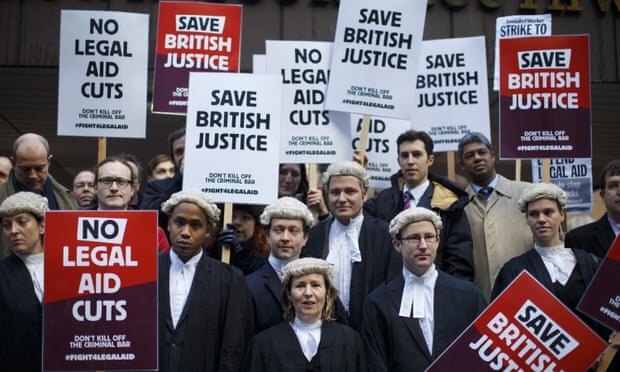Leducate Explains: Legal Aid
What is Legal Aid?
Legal Aid is money provided by the government to help cover the cost of legal advice and legal representation in court. You may be able to apply for Legal Aid if you are unable to afford your own legal advice.
Credit: https://law-tech-a2j.org/
Why does Legal Aid exist?
Legal Aid aimed to ensure that even if you don’t have enough money, you will still get a fair hearing. The money provided by the government may cover all of, or some of, the costs of the legal advice that you need should you have to go to court.
In what situations might Legal Aid be needed?
If you or your family are at risk of serious harm, for example, domestic abuse
If you are at risk of becoming homeless
If you have been accused of a crime and are facing a potential prison sentence
If you are facing, or have faced discrimination
If you need family mediation (a trained professional to help to make childcare and finance arrangements)
If you are bringing a case under the Human Rights Act.
Eligibility
In order to determine a person’s eligibility for legal aid, two main things are taken into account:
A person’s financial circumstances
The type of case (Criminal or Civil)
There are two types of Legal Aid:
Criminal: matters that concern the prosecution of criminal offences
Criminal offences include Murder/Manslaughter, Assault, Theft, Fraud and Traffic Offences.
Criminal Legal Aid is…
tested using questions such as ‘is it likely the person will lose their liberty (freedom) or livelihood? and is means-tested. This means that things such as income, family circumstances (e.g., number of children), and essential costs (e.g., mortgage/rent) are taken into account when determining whether a person qualifies for Legal Aid to cover some or all of their costs.
Civil: disputes between two parties – e.g. you and another person, or you and an organisation.
Civil disputes include: Family disputes, Property disputes, Employer disputes
To apply for Civil Legal Aid, a person must submit an application to the Legal Aid Board.
The Legal Aid Board will then take three things into account:
Scope - whether the case itself is eligible for legal aid
Merit – how likely it is that the case will be successful
Means – as in criminal cases, a person’s finances are taken into account
In most cases, Civil Legal Aid will not cover all of the costs, therefore, a person will have to pay a proportion of their fees. This may be an upfront cost, or it could mean that some of the costs have to be paid back if the case is won.
Source: The Guardian
What if I’m not eligible for Legal Aid
Legal Aid is designed to help make access to justice more accessible for all. However, there are often situations where people neither qualify for Legal Aid, nor can they afford the cost of legal proceedings. There are many charities that also provide free legal advice, however, such as:
Advocate - a charity that finds free legal assistance for members of the public from volunteer barristers who are willing to donate their time and expertise.
Citizens Advice – a network of charities that give free, confidential information and advice to assist people with money, legal, consumer and other problems. They can explain things like how to get free or affordable legal advice, and how to take your case to court without a lawyer.
The Law Centres Network – Law Centres offer legal advice, casework and representation to individuals and groups. They also help build capacity within local communities by training and supporting local groups and educating people about the law and their rights.
AdviceNow – a website run by the charity Law for Life which provides accurate, practical information on rights and the law in England and Wales.
The Right to Legal Advice
Even if you are not eligible for Legal Aid, there are still things to bear in mind – for example, at police stations …
You have the right to free legal advice; you can get it later if you initially turn it down
You can tell them you would like legal advice
You can ask for the station’s ‘duty solicitor’
You can ask them to contact your own solicitor
If you ask for legal advice, the police cannot question you until you have received it. The longest you can be made to wait for legal advice is 36 hours.
The police can hold you for up to 24 hours before they have to charge you with a crime or release you – this is for a less serious crime.
Glossary box






